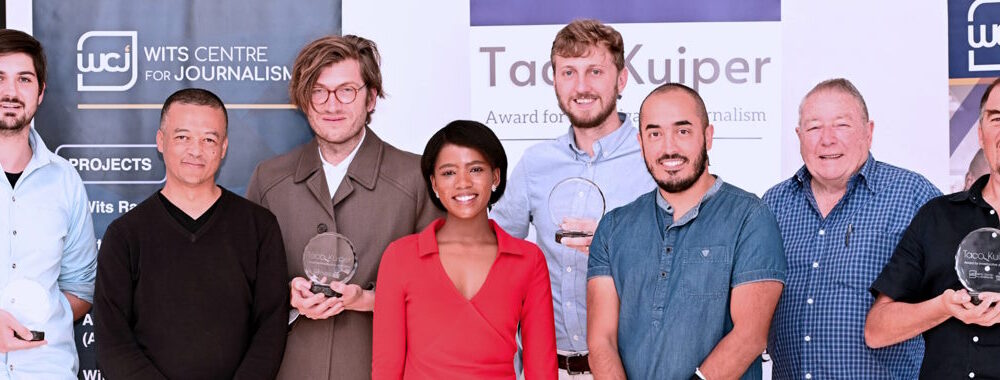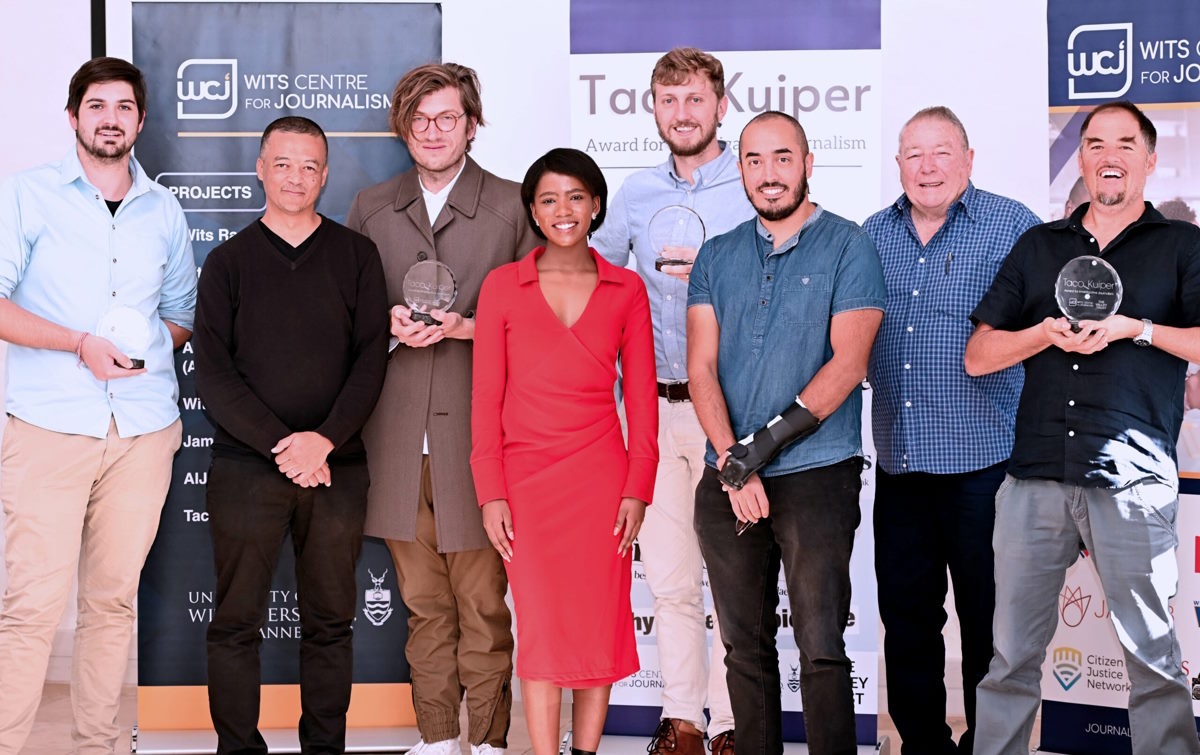
Marecia Damons and Daniel Steyn have taken top honours at the 18th Taco Kuiper Award for Investigative Journalism for their explosive exposé of Thabo Bester’s escape from prison, a saga which has captured the attention of millions of South Africans across the country since the story broke in 2023.
“South Africans often comment that living in our country is like watching a movie. For months this is exactly how people felt when they saw updates in the ever-evolving saga of Thabo Bester,” said convenor of judges for the awards, Beauregard Tromp.
“The journalists were given the tip-off by a board member at GroundUp, Justice Edwin Cameron, but did a tremendous amount of legwork in getting access to witnesses, CCTV footage, property records and a host of other evidence to build their sensational narrative.”
Joint second place went to Aron Hyman, Tankiso Makhetha and Graeme Hosken of TimesLive for the Kidnapping for Ransom series of investigations, which examined the scourge of kidnapping that has made its way from Maputo to Cape Town.
Here the judges took note of the team’s tireless efforts in speaking to a number of intelligence and police sources, victims, their families and others to piece together “quite an incredible tale”. The judges’ comments vacillated from “difficult to believe” and “fact is stranger than fiction”, to being left “punch-drunk” by the prose.
Dewald van Rensburg, Micah Reddy and Sam Sole of amaBhungane also shared second place for the Moti Files exposé.
“amaBhungane are regulars at these awards, and for good reason,” said Tromp. “Their series on Zunaid Moti and his shadowy dealings started off with a leak of documents. But there was no straightforward narrative here and the team once again showcased their specialist expertise at unraveling complex financial transactions, cultivating expert sources and carefully putting together the many pieces of the puzzle.”
The judges were also impressed by the team from Oxpeckers for their #PowerTracker series examining the Just Energy Transition, which is the government’s plan of weaning the country off of coal powered electricity – dirty energy – towards renewables and the impact that has on the people directly involved in the coal industry. One judge referred to it as “cerebral” and praised the engagement with people seemingly forgotten in the planning. Here we also saw a very effective use of the Promotion of Access to Information Act, which helped significantly to inform their story.
The awards ceremony was hosted by the Wits Centre for Journalism and Valley Trust on 31 May at Wits University, again honouring the best of South African investigative journalism that shines a light on pertinent issues in the country.
Commenting on the entries received, Tromp said this year saw a shortage of television and radio entries, mediums which have traditionally offered strong investigative journalism.
“We all know that journalism is under significant pressure, and we have often lamented the perils of print journalism in particular. We should also perhaps consider the considerable strain that our colleagues in radio and particularly television must be under, where producing a visual investigative piece can be an especially costly undertaking,” he noted.
“This past year we also saw the continued efforts to silence journalists by increasingly turning to the courts, the use of social media to harass them, and the publication of advertorials. In some cases, journalists have had to fear for their personal safety. Being an investigative journalist in South Africa is possibly the most perilous job in media,” he says.
“Whereas they enjoy some protection under the law, more is required from the larger fraternity of journalists, our larger society and our government to ensure that the freedoms we enjoy, especially because of this special group of people who go to war for us daily, continues to grow.”
WCJ Director Dr Dinesh Balliah agreed, saying there is no better way to recognise the critical importance of investigative journalism in this country and across our region and continent, than to look at the impact of the work produced by colleagues on the shortlist at this year’s awards.
“By acknowledging this work, we also amplify the call for journalism to be recognised as a public good and to be supported through efforts, both locally and internationally, to find new ways of sustaining this crucial work.
“The Wits Centre for Journalism is committed to leveraging its international positions and global networks to securing support for investigative journalism and journalism generally, through grants, fellowships, and core funding. We do so, of course, with support from our funders and partners who recognise that African investigative journalism is firmly on the map and has much to offer to the international community,” she says.


